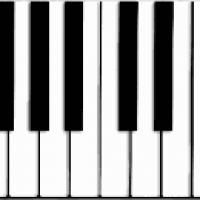DjangoBooks.com
Welcome to our Community!
Categories
- 20K All Categories
- 1.1K General
- 485 Welcome
- 60 Archtop Eddy's Corner
- 147 CD, DVD, and Concert Reviews
- 385 FAQ
- 26 Gypsy Jazz Italia
- 27 Photos
- 209 Gypsy Picking
- 21 Unaccompanied Django
- 15 Pearl Django Play-Along Vol.1
- 17 Gypsy Fire
- 45 Gypsy Rhythm
- 1.4K Gypsy Jazz University - Get Educated
- 131 Gypsy Jazz 101
- 231 Repertoire
- 228 History
- 709 Technique
- 51 Licks and Patterns
- 6 Daniel Givone Manouche Guitare Method Users Group
- 20 Eddie Lang Club
- 1.3K Gypsy Jazz Gear
- 816 Guitars, Strings, Picks, Amps, Pickups and Other Accessories
- 465 Classifieds
- 52 Recording
- 63 Other Instruments
- 18 Violin
- 5 Mandolin
- 22 Accordion
- 7 Bass
- 11 Woodwinds
- 351 Gypsy Jazz Events
- 144 North America
- 112 Europe
- 95 International
In this Discussion
Who's Online (0)
Quick reality check for total beginner, please
 Lipman
New
Lipman
New
I don't play the guitar. As so many, I learned some three chords in summer camp a hundred years ago, and that's it. So now, I grabbed a friend's (standard, nylon-string) guitar for fun and a (thin) pick, actually remembered the G chord and tried that thing you guys do with the lifting of the left hand between chord sounds. When I lifted them, they went plong, plong whenever a finger left a string. Normal dry, clean hands, for what it's worth.
Is that normal for nylon strings, or simply for beginners, though I'd be curious how that would be a matter of technique then?









Comments
If it’s the G chord with three open strings, that won’t work for the technique you’re describing. It only really works if all the notes are fretted.
Thanks!
Because the open strings go on vibrating? But would that change the sound my finger seems to make when it leaves the string?
If you're playing a chord with no open strings and want to do gypsy jazz rhythm, don't lift off of the strings. Rather, just release pressure but keep your fingers touching the strings. Also, fret loosely in the first place, because the chord should sound sort of like a cross between a guitar and a snare drum played with brushes.
If you ever do leave the strings, it should be done gently -- first, release pressure but keep touching the string, then you can lift off. Two motions in very quick succession.
Ah, that sounds tricky, but it makes sense!
So, maybe I won't give up before I start then, and either try some more, with videos, books, and websites, or glook for a teacher.
OP, very cool you remembered those simple chords from summer camp - shows you have a good muscle memory for guitar and your ears are working too. You can absolutely learn this style but imo, it's probably very difficult to jump into ground up without getting down some of the true basics first, like memorizing all of the open "folk" chords and learning how to read music/rhythm notation on a basic level. From there, you should be able to expand into barre chords and single note melody playing across the neck, which will also help you become more skilled with using a pick. Maybe look into exploring an "easier" genre at first that can be very complimentary as well, like blues (or even just some basic blues licks).
Other may disagree with me on this but I do think that unless you're able to immerse yourself into the genre everyday by being around legit teachers/players, it's better to get down all the guitar basics first before immediately jumping into it. That said, one nice thing about this style is you don't need to focus on jazz theory or anything like that; it's more that you need some degree of faculty around the neck and when that happens you can learn to comp behind Minor Swing almost immediately! All the jazz theory/scales/modes can come later as you become more proficient and even then they're not required at all to become a good, if not great player. So to that end, best of luck and always try to keep in mind that persistence is what pays off!!
Yes, open strings continue to ring and the idea behind lifting the fingers slightly is to choke the sound of the strings. If you don't know any chords without open strings, you can get the effect by laying your index finger across all six frets. Don't lift the finger off the strings, leave it on but relax the pressure so that when you hit the strings with your pick, it should make a dull thud-like noise. The aim is to make that thud sound even across the strings with no ringing notes, no overtones. If that all makes sense, try playing the chord with the finger pressed down so the notes do ring out, then release the pressure as quickly as possible to stop the ringing. That's what we're doing when playing rhythm, allowing enough of the chord to sound so that we know what the chord is, but stopping it as soon as possible to make it sound more percussive.
Reminds me of jokes about German piano teachers not allowing their disciples to open the fall board before the second year. :)
But yes, that does make a lot of sense, thank you!